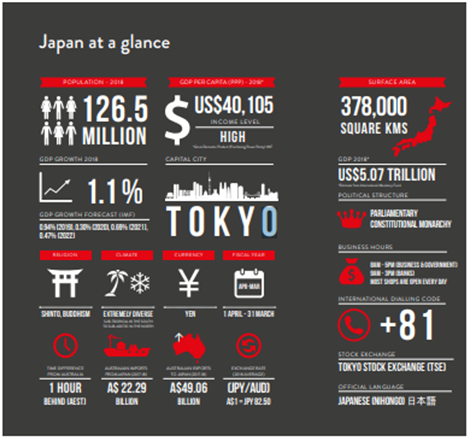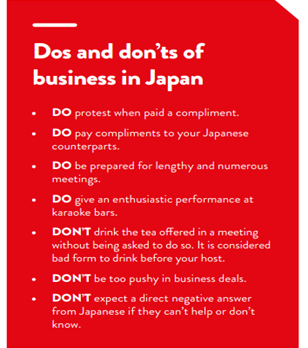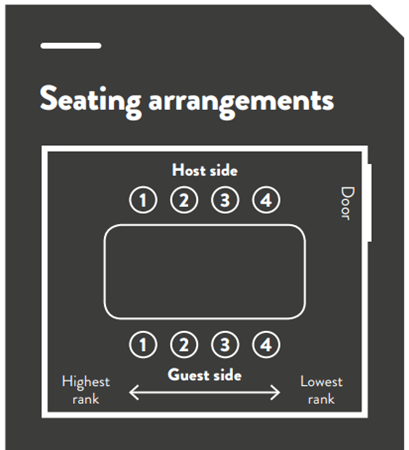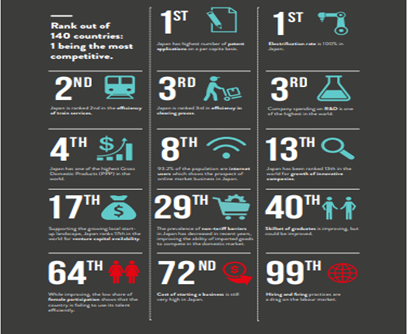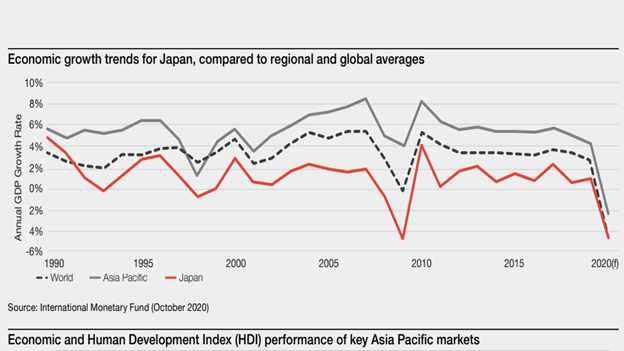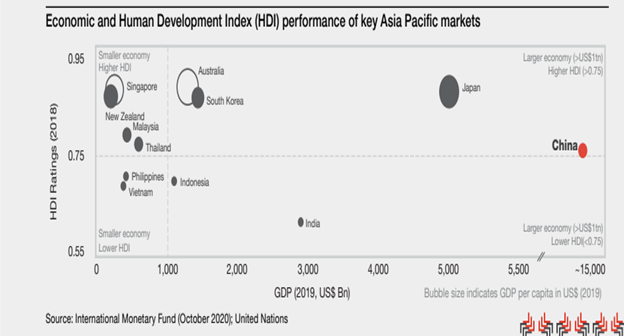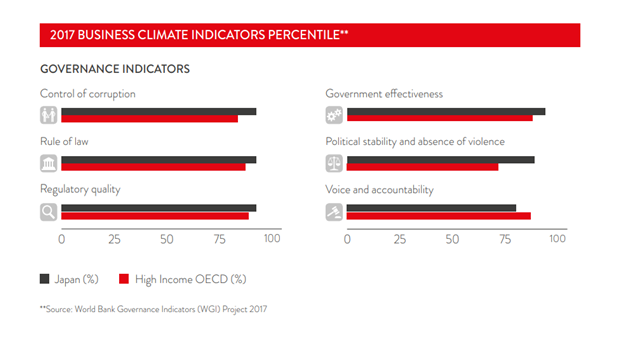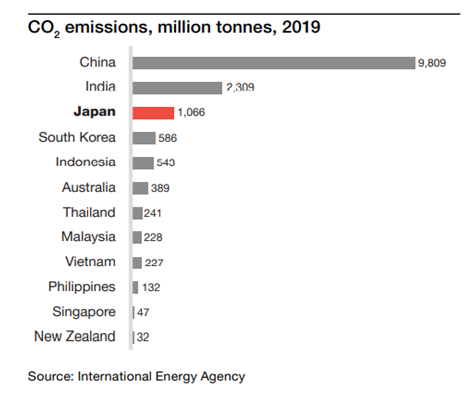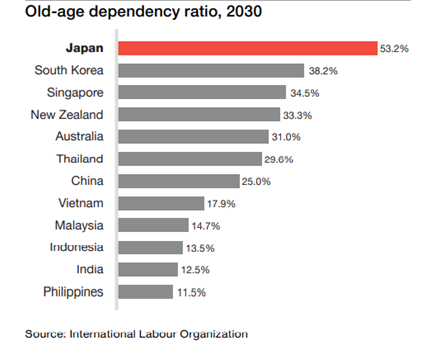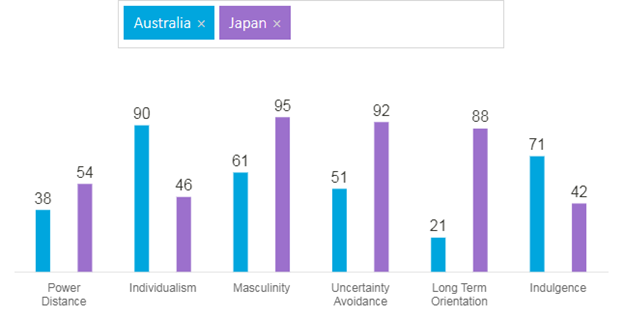Marketing Assignment: Business Opportunities For Chefgood In Japan
Question
Task:
Country: India or Japan
Your task is to write a marketing assignment analyzing the following information of the chosen country to assess the opportunities and challenges of doing business in the country for a foreign business:
- Economic climate
- Political climate
- Legal and bureaucratic environment
- Social and cultural environment
- Managerial and labour environment
- Industry and policy factors
- Customer and competitive factors; and
- Other factors (if any)
- The report should reflect the following:
- Understanding of the nature of case;
- Theoretical understanding of the research;
- Practical application of the study;
- Logic and clarity of the research; and
You can choose either of the following two options:
Option 1: You choose a company in Australia that has not yet developed a business in the chosen Asian country to prepare such a report for the company. Your target audience would be the CEO or Directors of your chosen company. You could also assume the company’s industry area.
Option 2: You are not asked by a specific Australian company to prepare such a report. The CEO or Directors of any Australian companies which would like to expand their business in China or Korea can be your audience.
As such, your report needs to be written with this audience in mind; it should be developed to cover the issues of strategic importance at the CEO or Director level.
Answer
Executive Summary
The report on marketing assignment suggests that Chefgood will be immensely benefitted by treading into the Japanese market as the demand for readymade food solutions is gradually increasing. Rising numbers of single households and senior people are preferring to order food rather than cooking themselves. COVID has accelerated the opportunity as the senior people are not leaving the comforts of their homes. Japan is an affluent market having strong bi-lateral trade relations with Australia, courtesy JAEPA to enter the market effectively. The Japanese population are quite efficient with mobile technologies to place customised orders. There is competition from the fellow Japanese companies but has not been able to impact the market paving opportunities for Chefgood.But to make an impression in the Japanese market, Chefgood need to consider the comprehensive business etiquette and respect towards their culture to gain their trust and establish the roots in Japan.
Introduction
A report is to be prepared and presented to the Board of the readymade meal delivery organisation, Chefgood on its business prospect in Japan. This particular report will focus on various facets of the Japanese scenario like its political, economic, social and cultural, managerial, and labour environment alongside the industrial factors and competitiveness of the market. Chefgood is a Moorabbin, Victoria-based Australian food delivery organisation serving healthy and nutritious foods to its targeted customer segment. The firm is known to offer affordable customised meals starting from $9.95 as per the customer’s requirement(CHEFGOOD, 2021). Chefgood has reputation for handmade, calorie-controlled, sugar-free, locally sourced ingredients, and organic food items. Michelle, CEO and Co-Founder of Chefgoodafter spreading her business activities across Australia is looking for overseas expansion. Chefgood is chosen as Japan has an aging population and increasing number of single people. The senior Japanese leaving alone prefer not to shop groceries and cook, so Chefgood has a good opportunity to encase the aging Japanese market to spread its wing internationally.
Analysis
This is the most important section wherein a thorough analysis will be conducted to study the external market scenario prevalent in Japan to facilitate an active business spree for Chefgood. This part will start with the PESTEL analysis to analyse the external business environment followed by the Hofstede Cultural Dimensions to understand the differences between the Australian and Japanese cultures. The theoretical approaches alongside the industrial and labour aspects will help Chefgood to chart out an effective path to start its business operations in Japan successfully.
PESTEL Analysis
PESTEL stands for Political, Economic, Social, Technological, Environmental, and Legal factors to evaluate the external business conditions(Lasserre, 2017). Hence the PESTEL analysiswill be applied in the business scenario of Chefgood as it strives to penetrate the Japanese market.
Political aspects
Japan is a constitutional monarchy characterised by a democratic and parliamentary set-up with Prime Minister, YoshihideSuga at the helm(JapanGov, 2020). Emperor Naruhito is the Titular Head of the country. As per the Japanese constitution, the majority of the members are elected byfellow Japanese voters stating stability in the Japanese political scenario. The phenomenon is instrumental in paving an effective business environment for domestic and international companies to continue the business activities without any unnecessary government and political interventions(Meilich, 2019). Therefore Chefgood will be facilitated with a smooth passage to the Japanese territory having a business-friendly political environment and good terms with Australia.
Economic aspects
Japan is one of the biggest and developed economies around the world having a GDP of $5.07 trillion in 2018(Data.worldbank.org, 2020). The 126.5 million Japanese population have a per capita GDP worth $40,000 in 2018 showcasing a higher standard of living. Currently, Japan has the 3rd biggest GDP contributing 10% of the global economy(Austin, 2020). Japan is the epitome of advanced technological industries that have led to its miraculous economic revival since the 1950s. Japan has an educated workforce and majority of the Japanese are workaholic that adds value to the economy enormously(CNBC, 2018). The affluent domestic market is the biggest consumer for the products and services manufactured in the country. Japan is the 5th biggest exporter globally with an export volume worth$705.7 billion in 2019 having strong trade relations with countries like the US, China, and South Korea(JapanGov, 2020). Engineering and advanced technological products top the export list of Japan while it imports minerals and other raw materials to run its manufacturing plants. So Chefgood has an opportunity to tag the affluent Japanese with its readymade meals.
Social aspects
Japan is an aging country wherein 20% of the 126.5 million are above 65 years and averse to the idea of marriage and having children(Infograpics, 2018). Japanese culture is widely religiously influenced by Confucianism, Buddhism, and Shintoism. They are very attached to their culture and like people who pay homage to their cultural aspects like bowing is an expression of respect and generosity(Nguyen, 2020). The Japanese love to work and are attached to the organisations for a longer period such as most of them retire working at a single company throughout their life. They highly uphold their work and socialise with their colleagues treating them as an integral part of their life. Japan is a male-dominated society and this trend is even noticed at various workplaces(Mochizuki, 2019). So when Chefgood will be striving to enter the Japanese market, it needs to create a trust factor to gain the confidence of the Japanese who are very particular in upholding their traditions.
Technological aspects
Japan is a hub of technological prowess and an acclaimed advanced level manufacturer of motor vehicles, machine tools, electronic equipment, ships, metals, and processed foods among others. In terms of technological expertise, Japan occupies the 3rd position globally after China and the US(Latz, 2020). Household names like Sony, Mazda, Toyota, Suzuki, Mitsubishi, Nissan, and Panasonic are Japanese companies showcasing engineering and technological marvel. The country is the epitome of technological excellence producing 25% of the high-tech products and 30% of automobiles globally. The IT segment in Japan is worth $2.4 trillion in 2020 with an internet speed as high as 132.75 Mbps in 2021(Austin, 2020). The E-sports industry in Japan is scheduled to grow from ¥6.1 billion in 2019 to ¥15.3 billion in 2023. Japan has the 4th largest e-commerce market in the world at a worth $115 billion wherein 43% of the households prefer to shop online(Data.worldbank.org, 2020). So the figures are indicative that Chefgood can make a good market in Japan owing to the technological prowess of the country.
Environmental aspects
Japan like other countries is falling prey to the whims of nature, courtesy of global warming. Natural calamities have been an annual visitor in Japan and whimsical decisions like releasing the contaminated water of the Fukushima nuclear reactor in the seawater has worsened the environmental concerns(Jacobides, et al., 2018). But on a positive note, the country has strived to be a carbonneutral economy by 2050. Consequently, Chefgood has to deliver its environmental obligations with the pledge to reduce carbon emissions as much as possible to keep in tune with the country’s policy.
Legal aspects
The Japanese legal system is heavily influenced by the amalgamation of the European and Anglo-American legislations having certain Chinese and indigenous characteristics to it. The modern legal system prevalent inJapan has minutely dissected the vested powers among the legislature, executive systems, and judiciary(Mochizuki, 2019). This is done to facilitate efficient functioning of the government machinery and delivering business-friendly legislationenabling foreign organisations like Chefgoodto establish their business in the country.
Hofstede Cultural Dimensions
Geert Hofstede had introduced the six elements specified cultural framework to show the cultural differences between two countries. As Chefgood, the Australian readymade meal company is planning to expand internationally to Japan, a striking culturaldifference between Australia and Japan will be evident. Thus through Hofstede cultural dimension, the following cultural elements will be analysed to have a suitable understanding of the matter (Refer to Appendix) –
Power distance
This element deals with the level of inequality prevalent in the society showcasing how the society differentiates between an influential person and a layman. Australia has a lower score of 36 wherein there are no such traditional barriers between the executives as the superior can be easily reachable(Hofstede Insights, 2021). Contrarily, Japan scored a little higher at 54 implies it to be a hierarchical set-up. The decision-making power is restricted to the top executives while the junior employees are seldom asked for their feedback(Nguyen, 2020). In the Australian scenario, communication and the employer-employee relation can be informal which is highly unlikely in the Japanese set-up.
Individualism
Through individualism, the level of independence in the society among its members is adjudged whether it is an individualistor collectivistic society(Paine, 2019). Australia having a score of 90 indicates a highindividualist society having loose-knit family bonding. The same attitude is translated in the workplace as the workforce is anticipated to be enthusiastic and self-reliant. The placement job offers,and promotions are strictly contemplated based on merits. Japan with a score of 46 displays a collectivistic society,a common phenomenon among Asian countries(Michaeli, et al., 2016). The Japanese people believe in harmony amongst their groups and this group does not necessarily mean family, it can be employee bonding at the workplace. The Japanese are a loyal workforce and stick to the company for a longer period and treat their co-workers as an extended family.
Masculinity
Masculinity adjudges the motivational level of the individuals. A Feminine characteris determined if they listens to their heart by doing what they prefer to do (Kulka, 2020). Contrarily, a Masculine characteristic is aggressive in approach as they want to be the best in what they do.Australia shows a Masculine trait with a score of 61 as they are very aggressive in their action and want to be the best in what they do. This trait is helpful in the workplace as the conflicts are put off easily to attain the common goal to accomplish the business target. Japan with 95 shows off its ultra-masculine traits as the Japanese are quite competitive from an early age(Mochizuki, 2019). The Japanese workforce is highly motivated and determined to put an earnest performance to attain excellence in every sphere of their work. It is characterised by long working hours and unpaid overtime to drive their excellence to the next level.
Uncertainty avoidance
This element evaluates to what extent the members feel discomfortor threatened by an unknown scenario in creating assumptions and beliefs while trying to avoid those. Australia gained an intermediate score of 51 in this dimension while it is 92 for Japan stating that the fellow Japanese try to avoid any sort of ambiguous situation. It is because the countrymen are prone to natural disasters like tsunamis and earthquakes making them cope with sorts of uncertainties (Tesseur & Footitt, 2019). The Japanese follow etiquettes in every sphere of life and tend to follow a strict regime to have the details in place. Suppose Chefgood while making a business presentation to the Japanese clients need to have an exhaustive presentation to draw their attention rather than a concise form to bag the deal(Paine, 2019).
Long term orientation
Society ought to maintain certain societal links with its past while countering the challenges in the present scenario and the impending future. Australia is quite poor in this cultural element scoring a low – 21 indicative of a normative culture(Hofstede Insights, 2021). The individuals are very concerned about the current state rather than dig into the past or think about the future and the same can be seen in their working style focusing on the current project. Japan scored highly in this trajectory with 88 striving their long-term outlook characterised by virtues and good deeds(CNBC, 2018). It is seen in their adherence to greater relevance of research and development to ensure the longevity of the firms.
Indulgence
This cultural element determines the level to which individuals try to control their wishes, desires, and instincts (Kulka, 2020). Australia is a highly indulgent nation with a score of 71 as the fellow Australians attain every height to fulfil their desire and live a life full of adventure, excitement, and fun. Contrarily, the Japanese practise restraint having a lower score of 42. They are averse to leisure and prone to work as the Japanese tend to work rather than go for a holiday (CNBC, 2018).The Japanese government is trying to implement mandatory gaps between working hours as witnessing a suited Japanese with a briefcase even in the early morning is a common sight in major cities like Tokyo.
Industry and Policy Factors
Chefgood belongs to the processed food category offering readymade meal solutions to the customers. Since Japan is an aging nation, the senior Japanese people prefer to have readymade cooking solutions and this paves an effective scope for Chefgood to spread its business in the country. The company has varieties in menu options and the increasing willingness of the fellow Japanese to taste foreign foods will be an opportune situation. The impact of COVID has further isolated the senior people as they cannot visit the marketplace to buy groceries(PwC, 2020). So options in terms of Chefgood will be effective for the targeted segment. Australia and Japan have long trade associations.The phenomenon can be elaborated through the Japan Australia Economic Partnership Agreement (JAEPA) since 2015. The new regulation will ensure a smooth passage to the Australian firms like Chefgood in the Japanese territory (Asialink, 2019).
Bureaucratic Factors
The Japanese society is considered a bureaucratic structure having loads of regulations, procedures, permissions, authorities, and rituals to follow. They have huge respect for hierarchical aspects which are inculcated deep in their cultural beliefs(Nguyen, 2020). The decision-making power is concentrated amongst the top executives making the process slow and the workforce does not have a say in this regard. The Japanese customers are hard to convince and focus more on business etiquettes than the proposal itself. Thus ChefgoodtopenetratetheJapanese territoryhastoshowpatienceandperseveranceas theydo not make any business decision instantly.
Labour Factors
The Japanese workforce is well educated and has a zeal to work hard to achieve the business goals of the company. Japan is supposed to have long working hours wherein the employees provide over 80 hours of overtime monthly. But the Japanese workforce is very dedicated to their organisation and does not believe in frequent job changes(Mochizuki, 2019). They develop a deep attachment to the organisation and follow the instruction of the managers quite diligently. Australia trusts the Japanese workforce to deliver high-quality outputs though certain manufacturing jobs have shifted to China to take advantage of the lower cost. Contrarily, Japan is thinking to implement robotics to address the impending labour shortage due to the aging Japanese population (Infograpics, 2018).
Infrastructural Factors
Japan has huge potentiality in adhering to online sales as the market is about to reach AUD 150 billion in 2021(Asialink, 2019). Since Chefgood will be an online readymade mechanism, it is good to see the robust opportunity for the company in the Japanese territory. The gaining population of Japan is spending more time at home and making online orders and the trend is supposed to grow as 43% of the countrymen rely heavily on e-commerce(Latz, 2020). Moreover, about 90% of the Japanese population live in cities making the delivery process smooth as the cities are well connected with various kinds of transportation.
Competition in the Japanese market
Readymade food delivery solutions are gradually taking up the business scenario in Japan as an increasing number of single-person households are coming into being. The top players in the segment are Kewpie Corp, Nisshin Seifun Group, House Foods Corp, Ajinomoto Co, and Meiji Holdings. Certain players are coming up in the market but yet to get a strong foothold as Kewpie being the market leader captures only 1.8% of the targeted market(Asialink, 2019). So it is a challenging proposition forChefgood to build trust in the market and command a substantial market base among the singleton living in Japan.
Challenges in the Japanese market
This section will deal with the various challenges that Chefgood is supposed to encounter as it penetrates the Japanese market as follows –
- Though Japan is a developed country, its growth has been at a slower pace since the 1990s.
- Japan is gradually becoming an aging country as by 2030, 53% of the population will be in the senior age category leading to labour shortage, rise in medical and retirement expenses(Infograpics, 2018).
- Japan is among the top carbon emitters globally emitting 1,066 million tonnes of carbon in 2019(JapanGov, 2020).
- Japan has a higher tax bracket having no such relaxations for foreign investments.
- Japan has ongoing political issues with its neighbours like China, South Korea, North Korea, and Russia over territorial disputes.
- The country is prone to frequent earthquakes and natural disasters like typhoons and tsunami among others.
- The Japanese customers are quite unconvincing and do not believe the foreign clients easily.
- English is not a popular language in Japan as only a handful speak the language.
Recommendations
- Japan is a lucrative market for Chefgood to penetrate as the number of people preferring to order food is gradually increasing.
- The bilateral trade relations between Australia and Japan through JAEPA will ensure a smooth passage for the company into the country.
- Chefgood ought to learn the business etiquettes and Japanese way of business dealings to convince the customers.
- The company needs to elaborate its presentation and facts sharing to develop trust among the targeted segment gradually.
Conclusion The report concludes that Japan presents a ripe market scenario for Chefgood to grow its readymade food delivery solutions to the increasing aging and single Japanese. The targeted segment has higher affordability and a penchant for unique taste enabling the company to establish its base in the country. Japan has its share of issues but those risks are worth considering the vibrant business scope for the company thereof.
References
Asialink, 2019. Japan: COUNTRY STARTER PACK, Melbourne: Asialink Business.
Austin, S., 2020. Japan #3 in Overall Ranking. [Online]
Available at: https://www.usnews.com/news/best-countries/japan
[Accessed 17 August 2021].
CHEFGOOD, 2021. About Us - Everything You Need To Know About Chefgood. [Online] Available at: https://chefgood.com.au/about-us/ [Accessed 17 August 2021].
CNBC, 2018. Why does Japan work so hard? | CNBC Explains. [Online] Available at: https://www.youtube.com/watch?v=9Y-YJEtxHeo [Accessed 17 August 2021].
Data.worldbank.org, 2020. GDP growth (annual %) - Japan | Data. [Online] Available at: https://data.worldbank.org/indicator/NY.GDP.MKTP.KD.ZG?locations=JP [Accessed 17 August 2021].
Hofstede Insights, 2021. Country Comparison - Hofstede Insights. [Online] Available at: https://www.hofstede-insights.com/country-comparison/australia,japan/ [Accessed 17 August 2021].
Infograpics, 2018. Japan's Population Problem. [Online] Available at: https://www.youtube.com/watch?v=3tiqNlrUsHE [Accessed 17 August 2021].
Jacobides, M., Cennamo, C. & Gawer, A., 2018. "Towards a theory of ecosystems". Strategic Management Journal, 39(8), pp. 2255-2276.
JapanGov, 2020. Find your Japan | The Government of Japan - JapanGov -. [Online] Available at: https://www.japan.go.jp/japan/findyourjapan/ [Accessed 17 August 2021].
Kulka, R., 2020. From Civilization of Pessimism to Culture of Compassion: Self Psychological Reflections on Freud’s Essay “Civilization and Its Discontents”. Psychoanalytic Inquiry, 40(5), pp. 288-299.
Lasserre, P., 2017. Global strategic management. London: Macmillan International Higher Education.
Latz, G., 2020. Japan | History, Flag, Map, Population, & Facts. [Online] Available at: https://www.britannica.com/place/Japan [Accessed 17 August 2021].
Meilich, O., 2019. Strategic groups maps: Review, synthesis, and guidelines. Journal of Strategy and Management, 12(4), pp. 447-463.
Michaeli, M. et al., 2016. GLOBAL CULTURAL AND ACCOUNTING DIFFERENCE BETWEEN JAPAN AND THE USA. Proceedings of the Academy of Accounting and Financial Studies, 22(1), pp. 22-27.
Mochizuki, M., 2019. The flexibility of association between temporal concepts and physical space in the Japanese language. International Journal of Psychology, 54(6), pp. 759-765.
Nguyen, H., 2020. The Culture of Ambiguity: Ma in Japanese Culture and Design Movement Posters. Massachusetts Institute of Technology, 36(4), pp. 72-86.
Paine, N., 2019. Workplace Learning: How to Build a Culture of Continuous Employee Development. London: Kogan Page.
PwC, 2020. Time to Act - JAPAN: A nation on the move, Singapore: www.pwc.com/asiapacific.
Tesseur, W. & Footitt, H., 2019. Professionalisms at war? Interpreting in conflict and post-conflict situations. Journal of War & Culture Studies, 12(3), pp. 268-284.
Appendix
